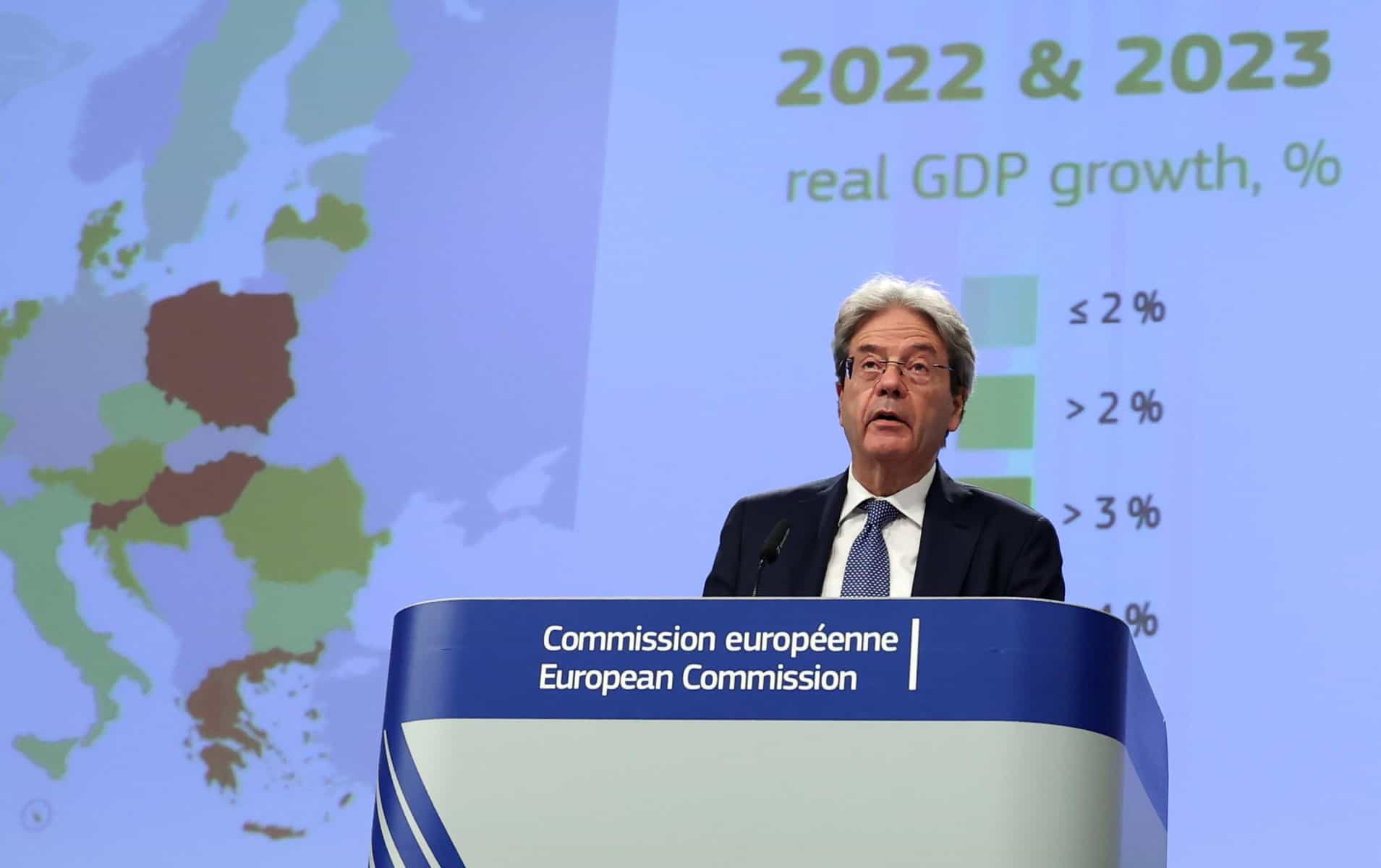The European Commission on Thursday slashed growth forecasts for the eurozone, saying the consequences from the war in Ukraine were continuing to destabilise the economy because of record high inflation.
The EU executive, which tracks the economy for the 27 countries in the European Union, said GDP growth in the eurozone would reach 2.6 percent in 2022 and a sharply lowered 1.4 percent in 2023.
Inflation would end the year at 7.6 percent, much higher than previously forecast, and 4.0 percent in 2023. This is still well above the EU’s target level of 2.0 percent and up from a previous prediction of 2.7 percent.
“The evolution of the war and the reliability of gas supplies are unknown, so this forecast is subject to a high degree of uncertainty and downside risks,” EU Economy Commissioner Paolo Gentiloni told a press conference.
In its forecast, the commission said the Russian invasion of Ukraine had put “additional upward pressure” on energy and food prices, which were eroding the purchasing power of households.
Other factors negatively affecting growth include the “faster than expected” tightening of monetary policy by the European Central Bank, which it says is needed to curb inflation.
Added to this is the “continued deceleration of growth in the US” and the impact of Beijing’s anti-Covid lockdowns, which have led to factory closures and depressed demand.
On the inflation front, the commission estimates the peak should be reached in the third quarter of this year and will then fall gradually to below 3.0 percent by the end of 2023.
Consumer price inflation hit a new record high in the eurozone in June, at 8.6 percent year-on-year.
The growth and inflation forecasts “depend heavily on the evolution of the war and in particular its implications for Europe’s gas supply”, the commission said.
“Further increases in gas prices could further raise inflation and stifle growth.”








